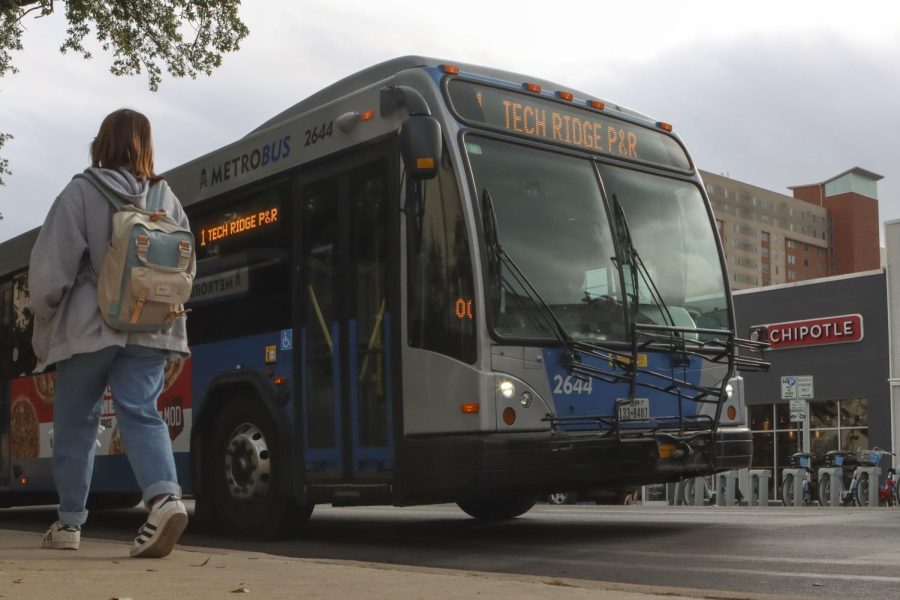UT civic group seeks student involvement in Project Connect proposal
April 13, 2022
A student civic entrepreneurship group is gathering community feedback from student residential areas — including North Campus and Riverside — as it develops a report to present to the city of Austin’s Project Connect stakeholders.
The group’s founder, Vaishnav Kuruvanka, said Texas Civic Impact Council’s project will serve as a proposal showing where student residents want a portion of the city’s $300 million anti-displacement fund, distributed alongside Project Connect, to be allocated in the next three to five years. The report focuses on community feedback from residents in the Riverside and Hyde Park neighborhoods, since Project Connect’s blue and orange lines will cross through those neighborhoods respectively. The council plans to present the report to the Project Connect community advisory committee before construction plans are finalized in August, Kuruvanka said. While Project Connect actively takes community feedback, Texas Civic Impact Council aims to cultivate student involvement, Kuruvanka said.
Furthermore, the council aims to present candid and unbiased community feedback and propose actionable solutions, finance senior Kuruvanka said.
“It was very obvious that … student voices were just not being included in this conversation at all,” said Ruth Mewhinney, international relations and urban studies senior and the council’s College of Liberal Arts chair. “This project has a lot of potential to do more harm than good, and that would look like displacing low-income, diverse communities due to things like changing market forces. Right when you put a big investment into a city, things like rent can increase, so you’re displacing the direct beneficiary of a project like this.”
In November 2020, Austin voters approved the anti-displacement fund as a part of Project Connect, a city initiative to expand and improve public transportation in Central Texas. $20 million of the fund is available for community-initiated solutions.
Lonny Stern, manager of business and community partnerships for the Austin Transit Partnership, said the partnership is gathering feedback through multiple mediums, such as public meetings, surveys, focus groups and social media. Austin Transit Partnership plans to hold a public meeting for the areas of East Riverside and Pleasant Valley on May 18, and another meeting for The Drag on May 24. More meeting dates for other areas of Austin can be found on the Project Connect website.
“There’s a large group of people who are maybe transportation experts, or engineers, maybe even policy experts, but they’re not an expert in your neighborhood,” Stern said. “The community’s feedback and feelings about what is prioritized and what is most important will shape the direction that the project moves forward.”
Greg Anderson, lecturer in the department of geography and the environment, said Project Connect’s biggest obstacle is the lack of responsible land use and zoning along current and prospective rail lines, which can be improved by updating the land development code since the city last updated it in 1984. The project has the potential to improve transportation affordability and reduce greenhouse carbon emissions in Central Texas, Anderson said.
“Right now you have more people on foot and on bikes crossing east and west on Guadalupe every day,” Anderson said. “But the majority of that public realm is dedicated to people moving around very inefficiently and (in) single-occupant vehicles. Project Connect is a great opportunity to … make Guadalupe an amazing and safe place for the tens of thousands of UT-Austin students who find themselves calling West Campus home.”
Despite the project’s extensive 13-year timeline, it is still important for students to get involved, Stern said.
“Building a transit system is kind of like planting a tree,” Stern said. “You may not be there to experience the shade, but you know that you’re providing something that is gonna bring pleasure and happiness to a lot of people in the future.”











